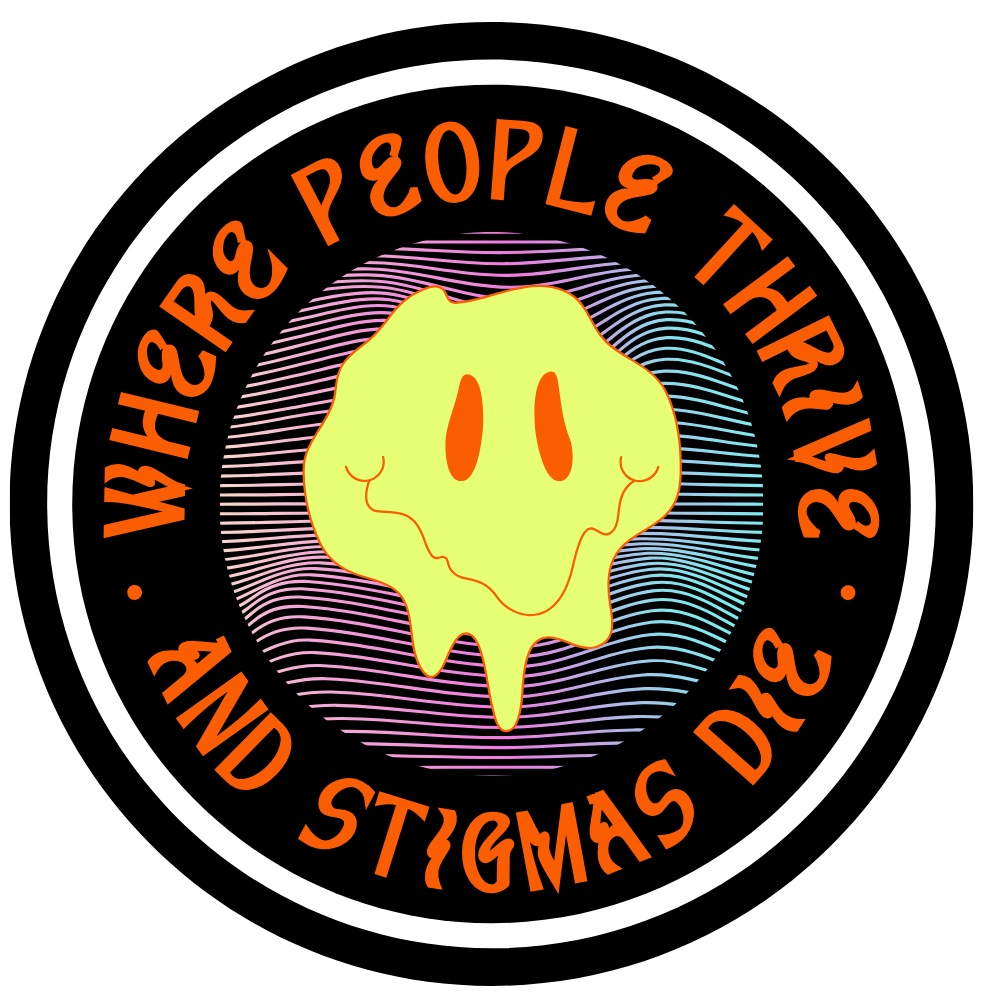Table of Contents
Wondering how to overcome depression during pregnancy? I’ve lived it firsthand, and I’m here to help in any way I can.
Did you know that a woman will experience more hormone production during pregnancy than at any other time in her life? This can be a euphoric experience for many women, but for others, this large influx of hormones can increase anxiety and depression during pregnancy.
First and foremost, if you’re experiencing prenatal depression, you are not alone! According to research, 10-20% of women will experience prenatal depression during pregnancy. Guess what? I was one of them.
If I’m being honest, I believe the number of women who suffer from prenatal depression is likely much higher. Yet, many women fear speaking out about their experiences due to stigmas and guilt.
When I finally decided to start speaking out about my depression during pregnancy, I was shocked to see that dozens of other moms felt the same way. Nobody was talking about it, so I just assumed I was alone. I couldn’t have been more wrong.
Regardless of who speaks out about their struggles and who doesn’t–what’s important is understanding how to get through depression during pregnancy. The sooner you recognize the signs and get help, the sooner you can heal!
During my experience, I found it very difficult to find any help online regarding ‘how to overcome depression during pregnancy.’ Most blogs were just regurgitated pieces of information in different tones with no personal experience behind them.
I knew right then and there that it was my mission to help other women learn how to overcome depression during pregnancy.
While I can’t guarantee that these things will work for you, and I highly suggest that you seek professional help regarding mental illness symptoms– these ten things helped me work through my depression and build confidence in pregnancy.
#1. Listening to Music
Music is one of my greatest forms of therapy. When I’m feeling down, I always find it helpful to search for new music that I can relate to, or that makes me feel good inside.
During my pregnancy, I started curating playlists that brought me joy and made me feel inspired. I was especially drawn to high-tempo beats that made me want to move my body around. Eventually, I started making playlists for my specific moods, which got me thinking about what kind of music I wanted to share with my daughter, Salem.
I found immense joy in showing Salem my new favorite songs and feeling her kick along to the beats. I even created a playlist that would help me relax during labor. Not only did this help my mood, but it also helped me connect to Salem and feel like an empowered mother.
Aside from my own personal experience, research shows that music can help modulate moods and emotions and is often used in therapy to help manage depression alongside other treatment methods.
#2. Body Movement
I can not stress this enough: moving your body is crucial to balancing stress and improving mental health. Whether you prefer gentle activities like yoga or more vigorous workouts, moving your body can release endorphins, aka natural mood lifters.
While I believe body movement is important, I acknowledge that getting out of bed can be a workout in itself during pregnancy or depression. If you can’t move your body daily, don’t beat yourself up about it. Balance is important.
Sometimes, on hard days, I would walk around my neighborhood for five minutes and return to bed. And when I couldn’t get myself to leave the house, I would just stretch in bed.
Whatever feels best for you, go for it.
#3. Journaling
Journaling was one of the best things I could have done to manage prenatal depression. If you’re not someone who usually enjoys journaling, that is okay. You don’t need to do it every day or even enjoy the process. And you certainly don’t need to write down long journal entries to get your thoughts out.
Shoot, it doesn’t even need to make sense. But it does help to get your thoughts onto paper–especially if you can’t talk about them out loud.
I like to think of my journal as my safe space. It’s where I can write down any thought without fear of judgment. It’s a space where I can express my feelings in privacy without sharing them with the world.
I’m a big believer that it’s normal to feel anger and frustration in life. But more often than not, our anger (especially when directed at another person) can cause more harm than good, and we often regret some of the things we say. Having a journal to get those thoughts out is a great way to process your emotions without hurting anyone in the process.
Aside from the therapeutic relief we often feel after writing down our thoughts, the most impactful part of journaling is looking back at my journal entries when the clouds pass. When I read back on a time that was particularly difficult for me and am able to look at how far I have come, it feeds me with an intense amount of gratitude.
It’s hard to see our strength in the moment, but in retrospect, we often make it through all of our hard days. Journaling allows us to keep track of those milestones.
#4. Vocalize Your Feelings
It’s okay to not be okay!! If anyone in your life makes you feel otherwise, I am here for you. I promise you– feeling upset or depressed during pregnancy can be a totally normal response to a life-changing event. While not everyone experiences it, it doesn’t make you a bad mother.
Similarly to journaling, talking about your feelings is one of the most important things you can do for yourself. Not only will it help you process your feelings on a deeper level, but it will also help you realize which ones don’t hold any truth.
A lot of the time, depression tricks us into believing we are less than worthy. But when we start talking out loud, we are reminded that these feelings are not true. For me, vocalizing my feelings led to others opening up to me about their hardships during pregnancy.
It was extremely helpful to realize that I wasn’t alone and I wasn’t crazy. If it wasn’t for talking about my fears with other people, I may not have gotten out of my depression as quickly as I did.
If you don’t have anyone to talk to that you trust, there are tons of support hotlines you can reach out to or pregnancy forums you can join to talk with other women. And if you’re not ready for that, bust out that journal and get writing!
#5. Strengthen Your Community
I’ve said it before, and I’ll say it again– vulnerability breeds community! When you get comfortable asking for help, you will start to build a supportive community around you. So many people want nothing more than to see you smile, but if you act like everything is always fine, they won’t know you need it!
As a first-time mom, I didn’t have a strong mom community going into my pregnancy. While many of my friends had kids, they weren’t necessarily the people I was hanging out with all the time. I started reaching out to women I looked up to and was met with open arms from so many women.
I found a whole new group of friends who I can reach out to for advice who have already been through it all, which made it so much easier for me in times of struggle.
I also connected with an old friend who had recently become a postpartum doula, and she helped me put together lists of things that I was excited about and really helped me turn the focus away from the external stressors in my life and toward my baby.
#6. Practice Self Love
While this might seem like a no-brainer–it’s probably the first thing we toss out the window when we’re depressed. When we find ourselves trapped in negative thought processes, it can be hard to show ourselves some love. Our brain starts to believe we’re lazy or not trying hard enough when that couldn’t be further from the truth.
In reality, you’re doing exactly what you need to do to heal. Resting is self-love. Setting boundaries is self-love. Crying is self-love. Sleeping is self-love. Brushing your teeth is self-love. Showering is self-love. Eating is self-love.
Each of these things helps our nervous system regulate itself. Unfortunately, society often makes us feel like showing negative emotions is inherently bad. Or that experiencing depression during pregnancy makes us less capable than someone who doesn’t experience these mental health troubles.
This misconception can lead to people bottling up their emotions and pretending they don’t exist, which can actually perpetuate depression.
Allowing yourself to feel a full range of emotions will help you move through them. You have to go through it to get through it. There is no magic solution. You have to do the work. And that starts with showing yourself some compassion and taking care of your basic needs.
If you’re having a hard time showing yourself some love–please, please, please reach out to a medical professional who can help.
#7. Educate Yourself on Pregnancy & Mental Health
Knowledge is power, baby! If there’s one thing about me, it’s that I’m going to research everything that is happening to me so that I can feel secure in my experience. When there are too many things floating around in my head that don’t make sense, it makes me feel uncomfortable.
Dealing with mental health problems for the first time (which is the case for many pregnant women) can be extremely daunting. You know you don’t feel like yourself, but you don’t know where to start or what is happening.
Educating yourself about depression during pregnancy and mental health can help combat some of these scary times.
There are so many hormones and emotions surrounding pregnancy; it’s totally normal to go through a million emotions a day. And understanding the signs of when those emotions start to appear unhealthy can quite literally be life-saving.
Whether you’re asking a friend or family member, watching a documentary, listening to a podcast, reading a book or searching online–there are tons of resources about pregnancy and mental health available for you!
#8. Set Boundaries with Yourself, Friends and Family
Learning how to set boundaries is a great way to start overcoming depression during pregnancy. For me, it was important to set boundaries with myself and the people around me.
When I was feeling depressed, it was difficult to have everyone around me express so much joy and excitement towards me and constantly wanting to ask me questions about the baby.
While I wanted to indulge in those conversations, I needed to process the pregnancy first. I began setting boundaries by asking people to kindly give me a couple of weeks before bombarding me with questions about the baby or allowing me to initiate those conversations.
It was also important for me to set boundaries with myself. I knew that I needed to process my feelings, but I was also very aware that allowing myself to only think about the hardships that I was experiencing was not healthy.
I allowed myself to feel sad or angry or frustrated when I needed to but placed boundaries around my feelings to ensure I was still getting my work done, going to therapy, and not letting my thoughts consume me.
#9. Focus on Things Within Your Control
Focusing on things within my control is arguably the most important thing I did to help get back to baseline. When you’re feeling depressed, it can feel good to sulk in a pity party. But that temporary goodness almost always turns into catastrophizing. One stressful thought becomes a catalyst of ‘what ifs’ that leave us feeling overwhelmed and helpless.
In the beginning of my pregnancy, I was faced with some family troubles that left me feeling very alone. I found myself constantly thinking about how I could fix other people and feeling frustrated that my pregnancy wasn’t how I imagined it would be. While at the same time, I knew there was nothing I could do to fix it.
After allowing myself to feel my feelings, I started turning that frustration towards productivity. I began working on revamping my website and writing about my experience so I could help other women. In turn, I was met with a sense of purpose and felt less involved with my family’s drama and more involved with my daughter.
#10. Go to Therapy
At last, we have arrived at the most important tip on ‘how to overcome depression during pregnancy!’ GO TO THERAPY! I know therapy isn’t for everyone… but if you’re feeling depressed and you need someone to vent to without judgment, therapy is the place to do it. I have been shamelessly going to therapy every single week for the last year, and it has significantly helped me.
At the end of the day, our friends and family members probably aren’t the best ones to give us advice regarding our mental health, and seeing a professional can help us learn new tools to overcome our sadness.
While many of the tips in this blog are tips that I learned in therapy, everyone is different and it’s important that you work out a personalized plan to get the best results.
Disclaimer: How to Overcome Depression During Pregnancy
While I do have a background in cognitive behavioral neuroscience, I am not a licensed medical professional. These are simply tips and stories from my personal life that helped me overcome my depression during pregnancy. I highly recommend seeking professional help if you are feeling depressed.






1 thought on “How to Overcome Depression During Pregnancy”
All good information. This was a lovely post.